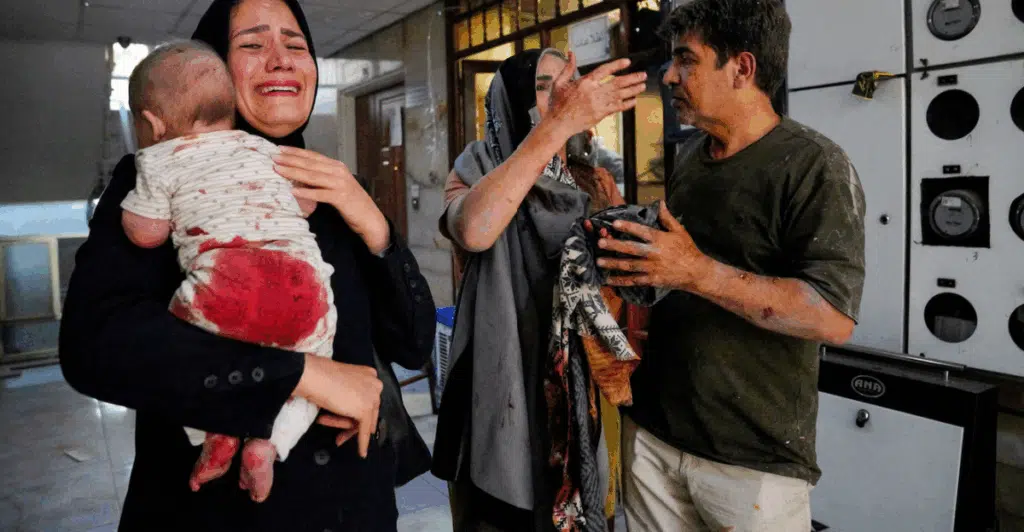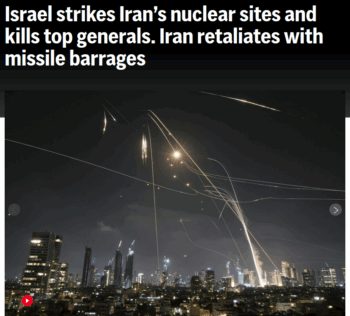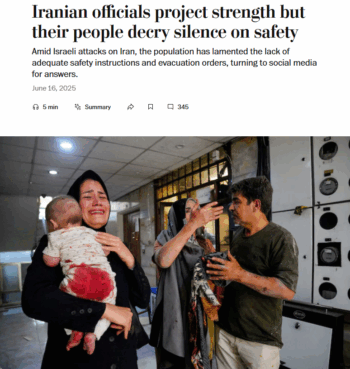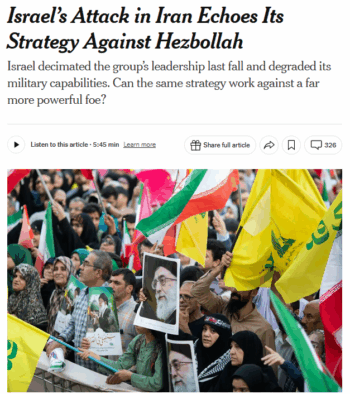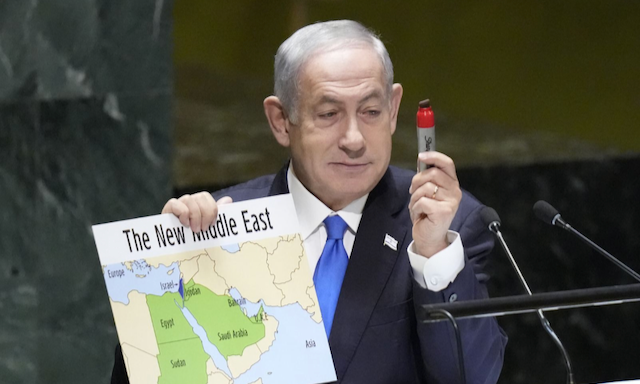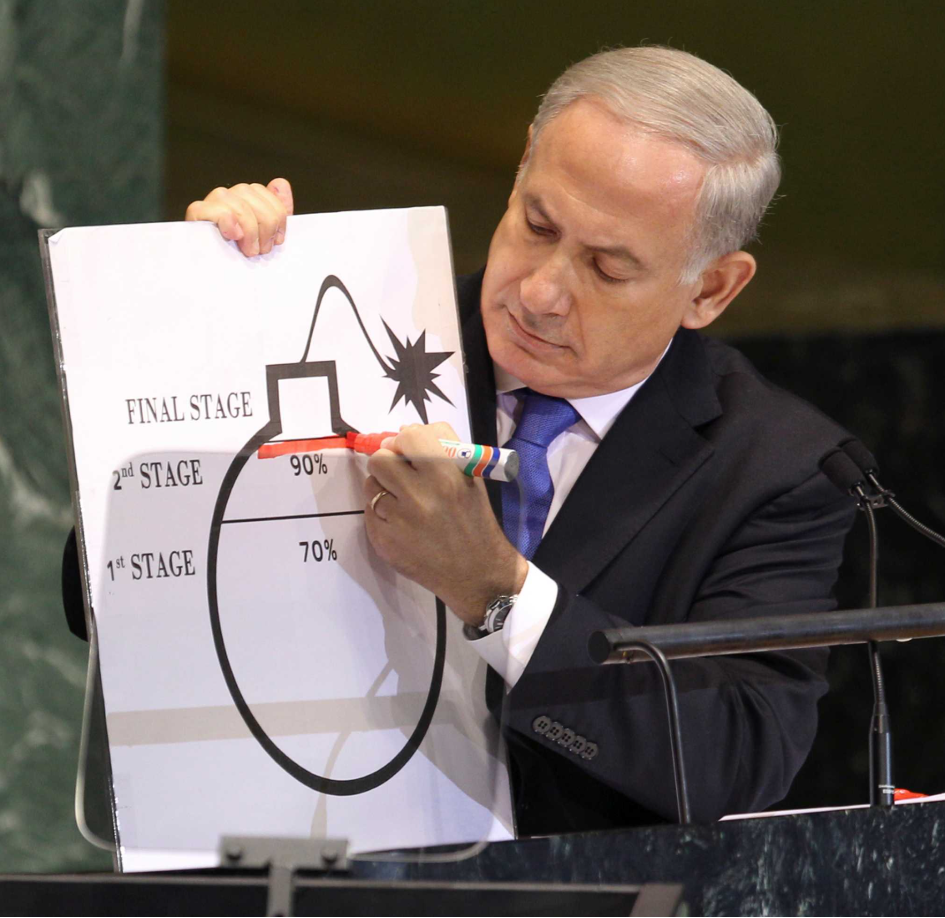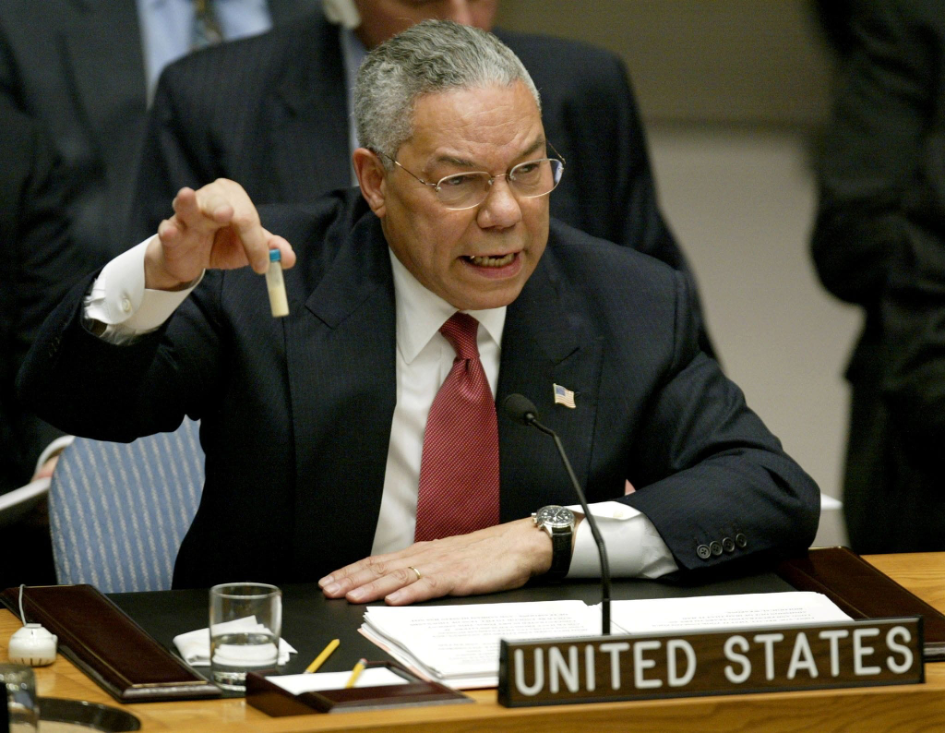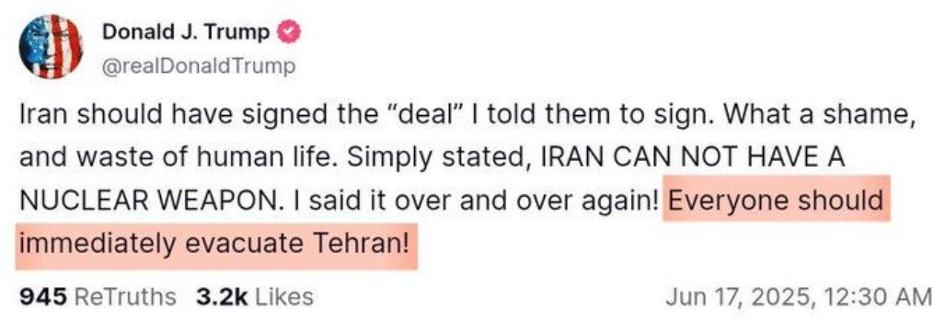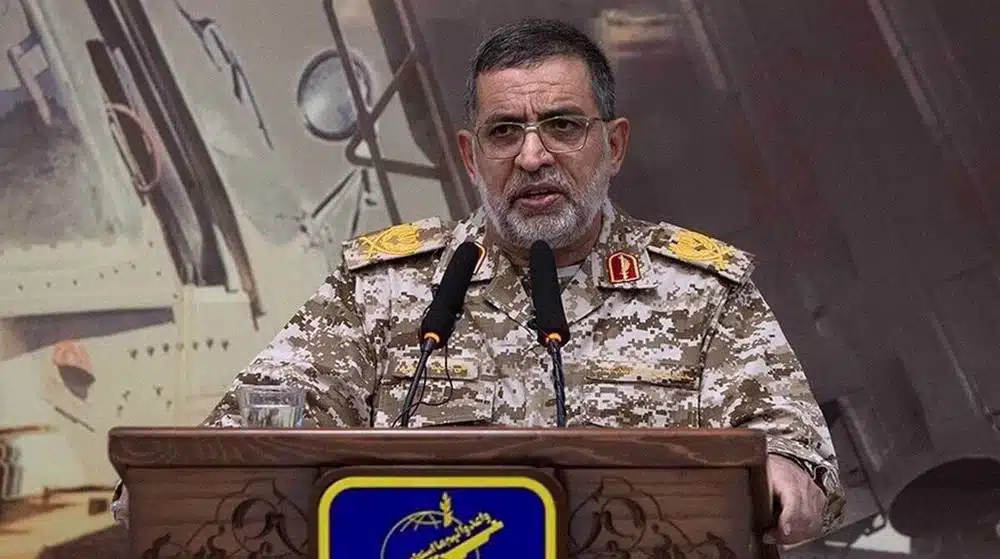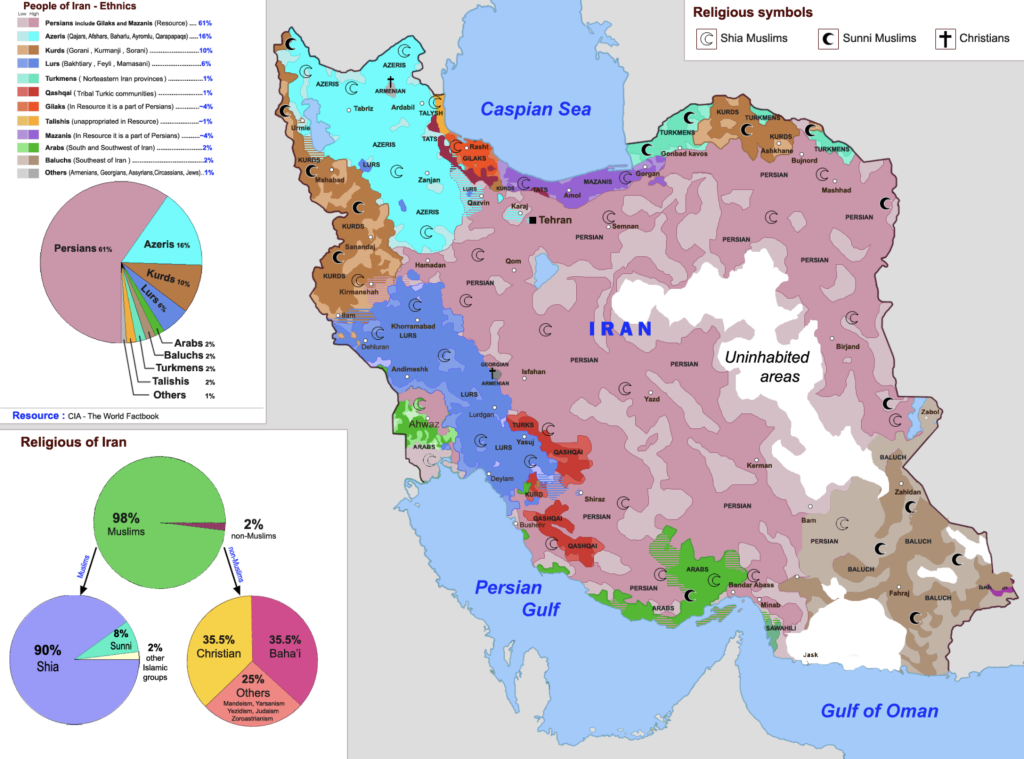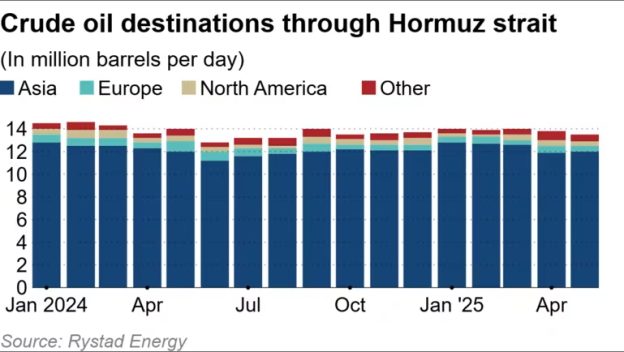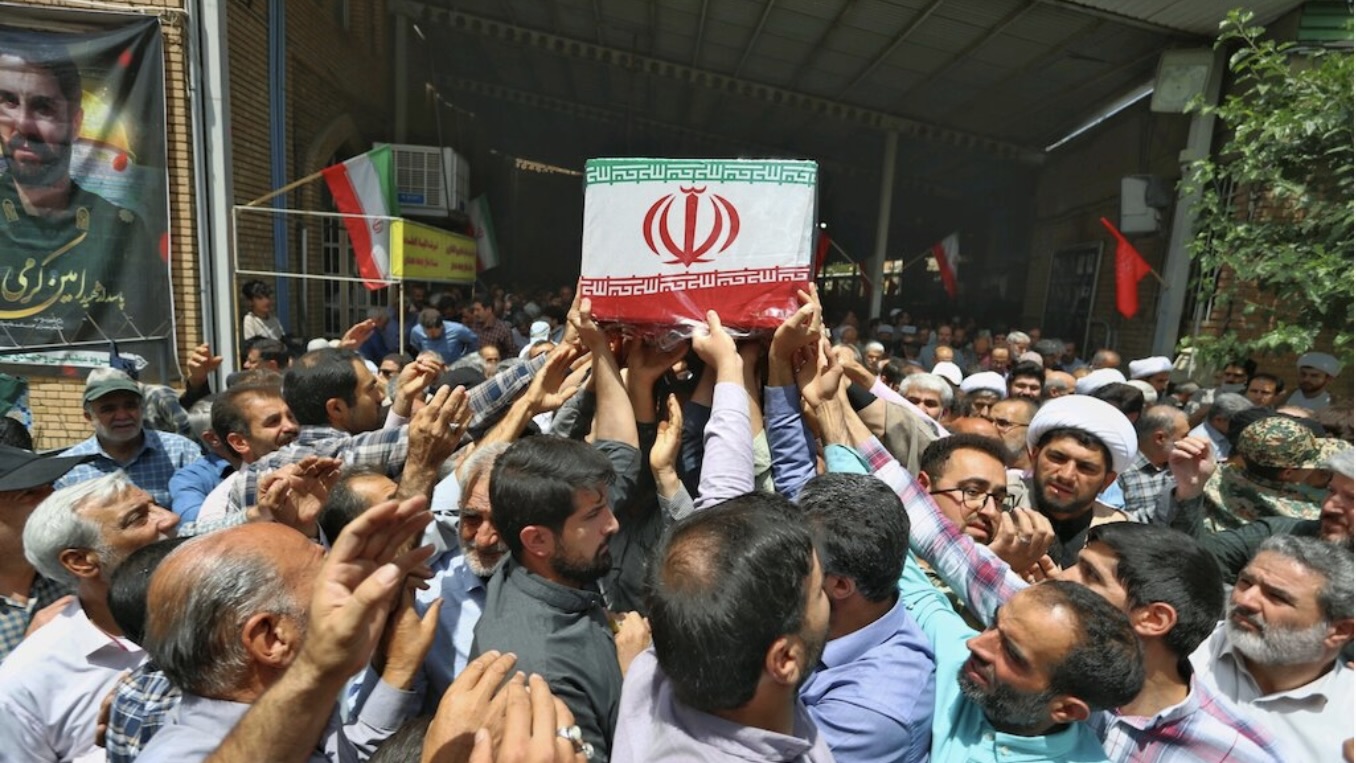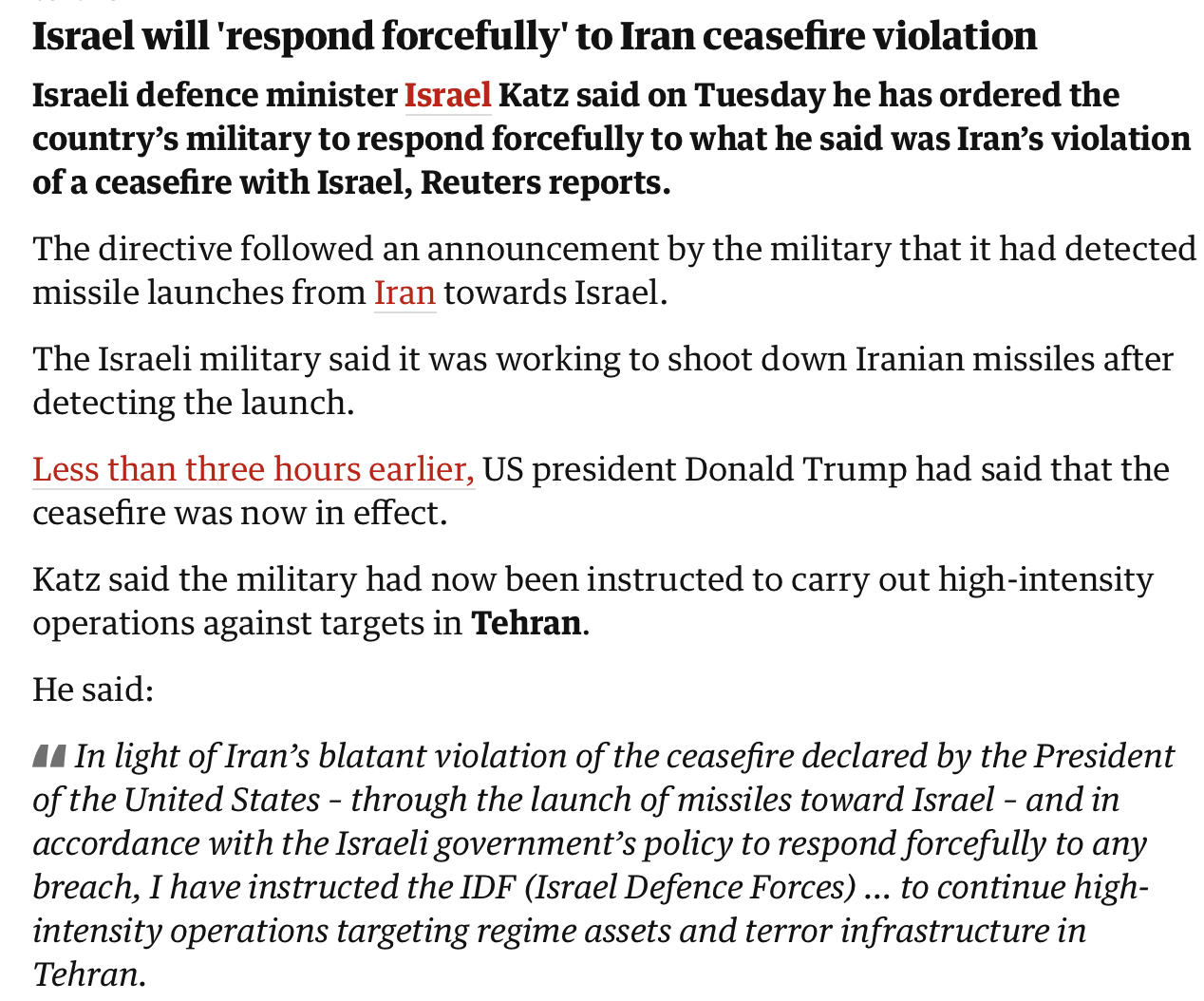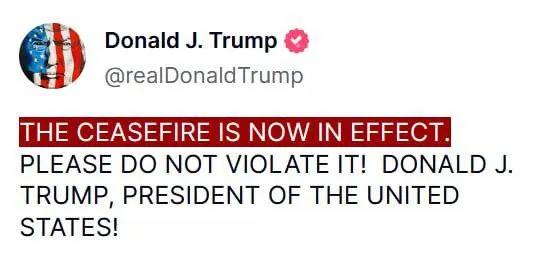June 20, 19:14

Iran returned to the tactics of daytime missile strikes and successfully hit targets in Haifa, Tel Aviv, Ashkelon, Beersheba + about 3 more hits somewhere on military facilities in the south of Israel. The most epic hit was in Haifa near the Yashd LeBanim skyscraper (they hit one of the buildings associated with the Israeli Interior Ministry). They also claimed to have hit the Knesset and the government building in Tel Aviv. To our delight, the Iranians have already announced that they have destroyed the "iron dome", but for now they are in a hurry. Yes, it has obviously sagged in effectiveness, but it still works and shoots down some missiles, but the ability to shoot down high-precision Iranian missiles is declining, that's obvious.



Ayatollah Khamenei said that the process of punishing the Zionists for their aggression will continue.
Pretentious Iranian pictures are attached.


https://colonelcassad.livejournal.com/9910773.html
Trump hesitates on Iran strike as satellite images expose limits of Israeli attacks
With bunker-busting bombs needed to reach Iran’s fortified sites, Trump faces mounting pressure to either escalate or back down
News Desk
JUN 20, 2025

(Photo credit: Handout/Maxar Technologies via Reuters)
A Bloomberg investigation and satellite analysis published on 20 June revealed the limited effectiveness of Israel’s bombardment of Iranian nuclear infrastructure, shedding light on the challenges facing any potential US strikes.
Satellite imagery taken after four consecutive days of Israeli air raids shows that key Iranian nuclear facilities remain largely intact.
Images of the Natanz enrichment complex from 17 June reveal only superficial damage to external electrical systems – components experts say can be repaired within months.
“They did damage but left a lot intact,” said Robert Kelley, a former International Atomic Energy Agency (IAEA) inspector and ex-director of US satellite analysis labs, who reviewed the images for Bloomberg.
The findings highlight the operational difficulty in degrading Iran’s nuclear program without a major escalation.
At the heart of that difficulty is the fortified structure of Iran’s nuclear infrastructure. Facilities like Natanz and Isfahan operate as part of an interconnected network that spans the full nuclear fuel cycle, from mining to enrichment, fuel fabrication, and waste management – making them resilient to limited strikes.
The Isfahan center, where uranium ore is converted and metal fuel is produced, was reportedly struck on 15 June. However, satellite images the next day revealed only minor impact.
The 409-kilogram stockpile of near weapons-grade uranium previously held there has since gone missing from IAEA oversight due to the ongoing fog of war, with UN inspectors confirming they have not had access since Israeli strikes began on 13 June.
“We haven’t been informed of anything in detail,” IAEA chief Rafael Grossi told Bloomberg. “In a time of war, all nuclear sites are closed. No inspections, no normal activity can take place.”
The loss of IAEA monitoring, combined with Iran’s decision to relocate uranium stockpiles under “special measures,” has intensified concerns over potential diversion. Experts say the material could now be stored in as few as 16 small canisters, making them easily movable and difficult to detect.
Yet the greatest obstacle to a full military strike remains Fordow, Iran’s most fortified site. Built inside a mountain near Qom and buried under at least 100 meters of rock, Fordow’s destruction would require GBU-57 bunker-buster bombs – the largest conventional munitions in the US arsenal. Israel lacks the necessary aircraft to deliver them.

Satellite Imagery of Fordow – Iran’s most fortified nuclear facility.
(Image sources: Planet Labs PBC; Bloomberg News - Image analysis by Robert Kelley, former inspector at the IAEA)
Experts suggest that the difficulty presented by these fortified sites may be the reason why Trump remains hesitant.
Trump claims he will make a decision on whether to strike Iran within two weeks. As Bloomberg notes, anything less than a full-scale operation would likely leave Iran’s nuclear capabilities largely untouched.
“Any competent designer will have backup power,” said Kelley. “The problem is that Iran prepared for this decades ago.”
https://thecradle.co/articles/trump-hes ... li-attacks
If the US targets Iran, Gulf states face a choice
As Iran and the occupation state enter direct confrontation, Arab states of the Persian Gulf face unprecedented threats to their security, sovereignty, and energy lifelines.
Mawadda Iskandar
JUN 20, 2025

Photo Credit: The Cradle
The rapidly escalating war between Iran and Israel has catapulted the Persian Gulf states into a vortex of geopolitical peril. Situated on strategic terrain and hosting a dense network of US military installations, these states are acutely aware that any US decision to join the warfront will obliterate their already-fragile neutrality. Their territories would then morph into frontline targets.
As the US-backed Israeli war on Iran escalates, the Persian Gulf monarchies are attempting a delicate balancing act – preserving security, safeguarding energy exports, and sidestepping an open-ended war that could raze vital sectors like aviation and desalination. Yet, they remain ensnared in a tightening web of regional alignments and strategic dependencies that leave little room for maneuver.
Diplomatic overtures amid firestorms
In the immediate aftermath of Tel Aviv’s 13 June strike on Iranian nuclear and military sites, Gulf capitals scrambled to project a posture of de-escalation. Saudi Arabia launched a flurry of diplomatic engagements with European and regional capitals – from Berlin and Brussels to Amman and Baghdad – urging restraint.
Qatar followed suit with calls to Ankara, Rome, and Ottawa, while the UAE coordinated with Paris, Islamabad, and Budapest. Even traditionally passive Kuwait and neutral Oman sought Turkiye’s assistance to cool regional temperatures.
A joint declaration from 20 Arab and Islamic states, including all six Gulf Cooperation Council (GCC) members, denounced any targeting of nuclear facilities and reiterated calls for a denuclearized region. Symbolic gestures followed: The UAE waived visa fines for Iranian residents, and Riyadh expedited the return of Iranian pilgrims.
Yet, the most forceful regional voice came from Qatar’s former prime minister, Hamad bin Jassim, who warned that Iran’s collapse would unleash uncontainable chaos. He urged Persian Gulf rulers to pressure Washington to “immediately halt the Israeli madness” and prevent the region from descending into full-scale war.
The ticking time bomb of US bases
The US military footprint across the Persian Gulf is both a deterrent and a provocation. Qatar, the only Gulf ally outside NATO, hosts the largest US outposts in the region at Al-Udeid and Al-Sailiya, which sit within 300 kilometers of Iran – well inside the range of even Iran’s older missile systems. Kuwait hosts four key US bases; the UAE, three; Saudi Arabia, Bahrain, and Oman each provide critical logistics and air-defense support.
While Gulf states retain legal rights to veto offensive operations from these bases, that sovereignty is largely theoretical if Washington chooses escalation. Iranian officials have already made clear that any platform used in aggression will be considered a legitimate retaliatory target. Should US airstrikes be launched from Gulf soil, none of these monarchies will escape the fallout.
Aviation paralysis and economic tremors
As tensions spiked, the region’s air corridors began to shut down. Flights over Iran, Iraq, Lebanon, and Syria were rerouted, suspended, or cancelled altogether. Emirates and Qatar Airways scrapped dozens of flights, while Dubai International Airport suffered cascading delays.
Rerouting costs surged. Fuel expenses soared. Passenger volumes fell. The financial hit was immediate: Air Arabia shares plummeted 10 percent – the sharpest drop since the 2008 financial crisis.
Energy chokepoints under threat
Iran holds the world’s second-largest natural gas and third-largest oil reserves. A single Israeli raid on a South Pars gas platform – connected to Qatar’s vital North Field – sent oil prices surging over 10 percent. If conflict continues, prices are projected to breach $100 per barrel.
That attack, despite sparing Qatari installations, jolted global energy markets and undermined confidence in the Gulf’s reliability as an exporter. The GCC faces a conundrum: While higher oil prices temporarily boost revenue, the specter of interrupted supply chains and targeted infrastructure poses an existential threat to their energy-based economies. Even brief closures of shipping lanes or disruptions at refineries could cause catastrophic economic blowback.
Straits on the brink
The Strait of Hormuz is the region’s jugular vein – 20 percent of the world’s liquefied natural gas passes through its narrow waters daily. Iran has repeatedly warned that it may close the strait if attacked. Such a move would cripple the exports of Kuwait, Qatar, and Bahrain, which lack meaningful alternative routes.
Even Saudi Arabia and the UAE, with backup pipelines to the Red Sea and Arabian Sea, cannot fully offset Hormuz’s strategic stranglehold. Further south, the Bab al-Mandab Strait – already disrupted by Yemeni military operations against Israeli shipping – saw daily oil transit fall from 8.7 million barrels in 2023 to four million in 2024.
Any simultaneous closure of both straits would spell catastrophe: The removal of over 60 percent of Gulf oil from global markets, pushing prices well beyond $200 per barrel.
A nuclear and cyber crossfire
Another silent peril looms: radioactive fallout. Iran’s nuclear facilities, located near Persian Gulf waters, pose a significant environmental risk. A leak triggered by Israeli strikes or sabotage could devastate marine ecosystems and render desalinated water undrinkable – an existential crisis for Qatar, Kuwait, and the UAE, which rely almost entirely on seawater for drinking.
Kuwait lies just 250 kilometers from the closest Iranian reactor, with Gulf currents flowing from Iranian shores. Yet, no comprehensive regional emergency plan exists. As Qatar’s foreign minister recently warned, even a minor contamination could deplete fresh water supplies within days.
Meanwhile, cyberwarfare has moved from the shadows to center stage. Disruptions in the Strait of Hormuz have already forced nearly 1,000 ships to revert to analog navigation amid suspected GPS jamming. The Gulf states now face the daunting challenge of defending not just borders and infrastructure, but digital sovereignty.
Strategic contradictions
The 7 October 2023 Operation Al-Aqsa Flood has reshaped the region’s political geometry. Arab states of the Persian Gulf, long tethered to US protection, are now hedging: normalizing with Tel Aviv, extending olive branches to Tehran, and pleading for strategic restraint from Washington.
But these contradictory moves – appeasing Israel, placating the Islamic Republic, and relying on the US – are colliding with a regional reality that no longer tolerates fence-sitting. What emerges is a West Asian policy built on three pillars: reconciliation with Iran, conditional normalization with the occupation state, and continued reliance on the US security umbrella.
Whether this fragile strategy can hold in the face of a widening war remains to be seen. But if the flames spread, the Gulf’s veneer of stability will be among the first to burn.
The views expressed in this article do no
https://thecradle.co/articles/if-the-us ... e-a-choice
Google Translator
*****
Trump Reportedly Greenlights Plan for US Attack on Iran Without Congressional Approval
Posted on June 19, 2025 by Yves Smith
Yves here. Yours truly had another post in the works, but high odds of war with Iran takes precedence. Trump has approved a US strike package for Iran but is allegedly holding off to see how Tehran responds to his latest ultimatum, which is to give up not just nuclear enrichment but also ballistic missiles, that is, render itself defenseless,. Trump has put pedal to the metal and has also thrown the steering wheel out the window. He’s created too much in the way of expectation of action to reverse course. TACO is prevailing: Trump is unwilling and/or unable to stand up to the Israel lobby and neocons.
Even though we put up a short post on open question, will the Strait of Hormuz close to traffic due to Iran action or insurer/shipper cautiousness, we thought it would be useful to highlight some other issues while waiting to see if, which now looks to be when, Trump pulls the trigger.
One is an important bit of information hygiene, since the propaganda seems to have distorted the risk assessment of not just members of the great unwashed public but also decision-makers. Israel has repeatedly claimed to have achieved air superiority in Iran. That’s nonsense. Other analysts have disputed this claim. For one stop shopping, we’ll turn the mike over to Simplicius:
Israel’s own claims of establishing total ‘air superiority’ over Iran are fraudulent: Israeli planes are not flying over Iran—there is zero evidence to support this claim.
Israel has been utilizing a combination of drone strikes—for which there is a mountain of evidence. UCAV drones are less detectable and expendable, which allows Israel to push them towards Tehran while suffering losses to shoot downs that don’t affect their public standing.
Every single strike video released thus far from Israel shows footage from a UCAV or surveillance recon drone cam, like in this case: (Image at link.)
IAI Heron, Harop, and Hermes drones have been spotted in Iranian airspace numerous times: (Image unavailable.)
And not a single video exists of any Israeli aircraft in Iranian airspace, but tons of video showing Israeli missile booster stages recovered in Syria and Iraq, indicating that Israel continues to fire missiles like the Blue Sparrow from outside Iran’s borders.
Other strike videos show the cam from the Delilah missile, which has a range of 250km+ and can reach many western Iranian sites even when fired outside the border.
The deputy governor of Isfahan has confirmed that the IRGC’s Khordad-3 air defense system intercepted and destroyed an Israeli drone near the Natanz nuclear facility, close to the city of Kashan.
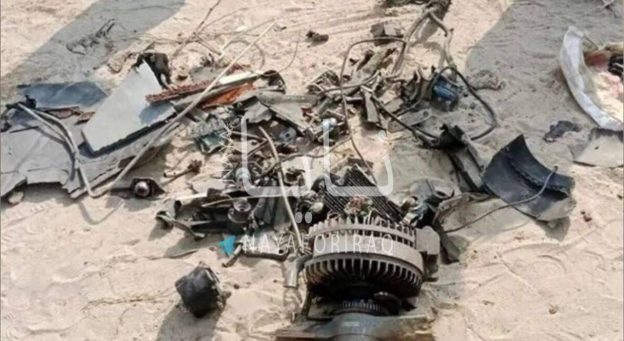
Earlier, at least two of the flagship Israeli Hermes UCAV drones were shot down over Iran: (Images at link.)
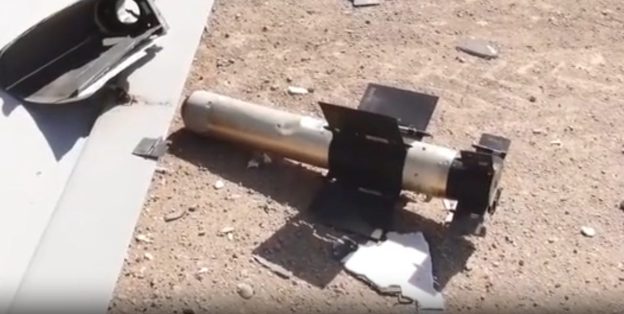
The images proved that Israel is utilizing laser-guided drone bombs to hit all the Iranian vehicles seen in strike videos, while long distance cruise and ballistic missiles like the Air LORA are used to hit larger infrastructural targets:
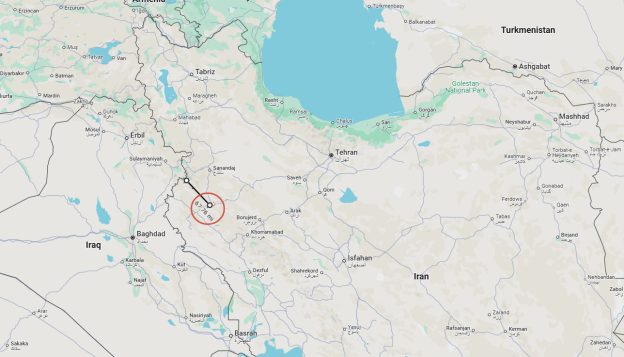
An Israeli Air Force Hermes 900 attack UAV shot down by the Iranians.
The suspension nodes of the intercepted Hermes-900 reconnaissance and strike UAV of the Israeli Air Force were equipped with small-sized guided aerial bombs ‘Miholit’, which are analogous to the Russian KAB-20S and Turkish MAM-L.
The weapons are equipped with semi-active laser (or thermal imaging) guidance systems and have a range of 12-15 km when dropped from altitudes of 5,500+ m.
It is obvious that this UAV was used directly to engage mobile anti-aircraft artillery systems of the Iranian Air Defence Forces.
There has only been one single piece of footage I’ve personally seen that could indicate Israeli jets just barely skirted Iranian territory, wherein it looked like possible JDAMS were dropped on Kermanshah, which is just barely over 100km+ from the Iranian border:
JDAMS typically have a range of 25-50km, though the JDAM-ER can do 75km+ but it’s uncertain if Israel possesses it. This strike could have represented Israeli jets getting a few miles over the border, but that’s about as far as they’re willing to go.
The big question is: why?
Because Israel has not yet degraded Iranian long range air defense whatsoever.
As many readers know, the Washington Post reported a couple of days ago that if Iran kept up its attacks on Israel at its current tempo for ten to twelve more days, that Israel would find its air defenses depleted. Israeli media claimed yesterday (and this was picked by Aljazeera) that Iran had launched fewer missiles that day, which Israel presented as the usual “they are about to run out of missiles” tale.
If the US bought Israel, erm, intel, the two claims above would translate into the US having an easy go of finishing off Iran.
Professor Sayed Marandi gives a different point of viewm, arguing that Iranians are deliberately pulling their punches. From a truncated interview on Dialogue Works:
[youtube]http://youtu.be/tgOo5fBSe3k[/yputube]
I think the the Iranians are playing mind games with the Israeli regime and that they are
changing tactics but also the . S so this is not just Israelis. The Americans are carrying the real weight here. They’re doing the heavy lifting right now. And so the Americans and the Israelis, they’re firing everything they have and soon they’ll run out of ammunition. So the Iranians are trying to push them to keep spending that that ammunition and at the same time, Iran is completely prepared for a potential American strike.
The bit of bravura does not mean that Mirandi is incorrect. Recall that Iran executed a similar strategy in a pre-negotiated retaliation on Israel last fall, sending a huge wave of slow-moving drones to deplete and confuse Israeli air defenses before sending in ballistic missiles that hit their targets precisely.
John Helmer independently came to a similar view. From a different Dialogue Works interview:
I’m not in a position to confirm that um Iran has not lost its air defenses. They’re being held in reserve.They’re being held in reserve in such a way that the advisers to President Trump are advising him that they’re being held in reserve, that there’s a serious risk of the kind of air attack that’s
being prepared, US tankers F-35s, F-15s, you can all read the way these being these are being redeployed, AC from the United States across Europe down to the Middle East
It’s…the first thing is that unless the United States demonstrates escalation control here and dominance, Trump isn’t a paper tiger he’s reduced to a level he can’t bear and that would encourage even more violence but even more loss. Second on the Iranian side there’s only one way to understand what they’re doing not withstanding all the confusion. And all Americans know it it’s
called rope a dope, rope a doe, the tactic of one of the greatest of all Americans Muhammad Ali used to fight by having his body against the ropes allowing the elasticity of the ropes to allow him to withstand massive amounts of punching by his enemy until his enemy got tired. When his enemy got tired watch what Muhammad Ali does it’s a beautiful brilliant display of counterviolence and he simply tears the adversary apart, having opened up um the vulnerability of exhaustion.
Now exhaustion is what Israel faces if it can’t continue to supply its anti-aircraft defenses with new missiles and it can’t refuel its missile offenses and it can’t get close enough to the Russian air defense system the S400s and others in Iran. If it can’t get close enough and it runs out of supply and
it’s desperate for US intervention both to resupply Israel and to take on the burden of escalation and attack. if the US doesn’t Iran absirb the punishment for another 7 to 10 14 days, the rope a dope will reverse
A key point is Helmer’s sources say that Trump has been briefed that Iran has air defense strike capacity in reserve. Yet the Israelis are now so needy and so many in the military-intel space are incapable of believing that any foreign power can contest the US that they are very likely to dismiss this information as inconsequential to battle plans.
So what happens if the US sends fighter jets and bombers into Iranian air space and Iran downs a decent number of them, or say even worse, most? What happens next?
By Jake Johnson, staff writer at Common Dreams. Originally published at Common Dreams
President Donald Trump is set to meet with top advisers in the White House Situation Room Thursday morning in the wake of reports that he has privately approved plans for a U.S. attack on Iran, a development that comes after days of pressure from Israeli officials and Republican war hawks in Congress to intervene in the war that Israel launched last week.
The Wall Street Journal reported late Wednesday that Trump told senior aides that he “approved of attack plans for Iran, but was holding off on giving the final order to see if Tehran will abandon its nuclear program.”
“While Trump weighed his decision, the U.S. military continued to move forces to Europe and toward the Middle East, including tanker planes to refuel aircraft in flight, warships capable of shooting down ballistic missiles, an aircraft carrier battle group, and advanced F-22 air-to-air fighters, which flew Wednesday to a base in Britain,” the Journalobserved.
CBS News also reported that Trump “approved attack plans on Iran Tuesday night.”
Trump’s belligerent rhetoric and demand for “unconditional surrender” ahead of a possible U.S. attack have drawn sharp rebukes from Iranian officials, who said Wednesday that the country “does NOT negotiate under duress, shall NOT accept peace under duress, and certainly NOT with a has-been warmonger clinging to relevance.”
The U.S. possesses 30,000-pound bunker-buster bombs within striking distance of Iran, and Israel claims it needs such explosives to hit Iran’s heavily entrenched Fordow nuclear site.
“We are the only ones who have the capability to do it, but that doesn’t mean I am going to do it,” Trump told reporters Wednesday.
With a final decision from the president expected at any moment, anti-war members of Congress are moving with urgency to build support for legislative efforts to avert an unauthorized U.S. attack on Iran.
Rep. Ro Khanna (D-Calif.), who is co-leading a House war powers resolution with Rep. Thomas Massie (R-Ky.), has called on Democrats to unify against U.S. involvement in Israel’s war.
“This is now defining for the Democratic Party,” Khanna toldHuffPost on Wednesday. “Are we going to criticize the offensive weapons for Netanyahu and the blank check? Are we going to stand up with clarity against the strikes on Iran? Are we going to actually be the party of peace, or are we going to be just another party of war?”
Just 37 members of Congress, according to one tally, have backed anti-war resolutions currently before the House and Senate, even as new polling shows that a majority of the American public opposes U.S. military action in Iran.
The two top Democrats in Congress—Senate Minority Leader Chuck Schumer (D-N.Y.) and House Minority Leader Hakeem Jeffries (D-N.Y.)—have been mostly quiet this week about the Trump administration’s march to war, and Schumer has declined to back legislation introduced by Sen. Bernie Sanders (I-Vt.) that would bar the president from using federal funds for an unauthorized attack on Iran.
But Schumer was among the top Democratic senators who signed a joint statement Wednesday declaring that “we will not rubberstamp military intervention that puts the United States at risk.”
“Intensifying military actions between Israel and Iran represent a dangerous escalation that risks igniting a broader regional war,” reads the statement. “As President Trump reportedly considers expanding U.S. engagement in the war, we are deeply concerned about a lack of preparation, strategy, and clearly defined objectives, and the enormous risk to Americans and civilians in the region.”
Sen. Tim Kaine (D-Va.) unveiled a war powers resolution earlier this week in the Republican-controlled Senate, but he must wait 10 days before he can force a vote on the measure.
“The Constitution gives Congress the power to declare war,” Kaine wrote in a social media post on Wednesday. “That’s why I filed a resolution to require a debate and vote in Congress before we send our nation’s men and women in uniform into harm’s way.”
Senators are set to receive a classified briefing on Iran from the Trump administration next week—but the president could order a military strike before then.
Politico reported Wednesday that “Trump, who criticized his predecessor for allowing new wars to break out on his watch, is increasingly listening to a small group of Iran hawks who have been pushing to go tougher on Tehran.”
“Trump has become more receptive to arguments by those advocating more military engagement, including Gen. Michael ‘Erik’ Kurilla, who leads Central Command, as well as Republican senators Lindsey Graham of South Carolina and Tom Cotton of Arkansas,” the outlet noted.
https://www.nakedcapitalism.com/2025/06 ... roval.html
******
Iran hacking security cameras across Israel to improve missile accuracy
An Israeli official told US media this week that the interception rate of Tel Aviv’s air defenses decreased by 25 percent over two days
News Desk
JUN 20, 2025

(Photo credit: Noam Moskowitz/Flash90)
Iran has been hacking into private security cameras across Israel to gather intelligence and improve the accuracy of missile strikes.
Israeli cyber security experts cited by Bloomberg on 20 June confirmed the Islamic Republic’s use of cyber espionage.
“We know that in the past two or three days, the Iranians have been trying to connect to cameras to understand what happened and where their missiles hit to improve their precision,” said Refael Franco, the former deputy director general of the Israel National Cyber Directorate (INCD).
A spokesman for INCD said, “We’ve seen attempts throughout the war, and those attempts are being renewed now.”
Gaby Portnoy, another INCD official, said hacking of security cameras was also carried out by Hamas ahead of Operation Al-Aqsa Flood in October 2023.
These cyber operations took place over the years, according to Portnoy, who also noted Russia’s use of the method during the war in Ukraine.
Earlier this week, a former Israeli cybersecurity official warned Israelis on a radio broadcast to turn off all home security cameras or change their passwords.
Cyberwarfare has emerged as a leading tactic in many world conflicts and is particularly used very commonly by Israel, which is known for its infamous spyware software and hackers.
An Israel-linked hacking organization called Predatory Sparrow recently claimed responsibility for disrupting a major Iranian bank and breaching an Iranian cryptocurrency exchange, causing the disappearance of about $90 million worth of bitcoin and other forms of cryptocurrency.
Iranian authorities and media outlets have warned over the past few days that the country has been subject to widespread Israeli cyberattacks.
Iran has implemented a nationwide internet blackout as a result, in an effort to stifle Israel’s efforts. According to Tasnim news agency, this blackout has managed to disable drones launched internally against Iran by agents affiliated with Israeli intelligence.
As Iran steps up its warfare, the accuracy of missile strikes has improved. A single Iranian ballistic missile struck the Beersheba area on Friday morning. Israeli air defenses were unable to intercept it.
Israel has cracked down on foreign news outlets broadcasting footage of missile impact sites, with authorities warning that the “enemy monitors the footage to improve its attack capabilities.”
On 19 June, an Israeli official cited by NBC News noted a 25 percent decrease in the interception rate of Israeli air defenses over a period of two days.
https://thecradle.co/articles/iran-hack ... e-accuracy
******
Tic-Toc Thread 6 On The War On Iran
I commented yesterday that Trump Always Chickens Out (TACO) by pointing to a CNN piece:
Trump will allow 2 more weeks for diplomacy before deciding on US strike in Iran, White House says
“Based on the fact that there’s a substantial chance of negotiations that may or may not take place with Iran in the near future, I will make my decision whether or not to go within the next two weeks,” said the president in his statement, which was read aloud by press secretary Karoline Leavitt from the White House briefing room.
However, "within the next two weeks" is open to many possibilities. Still I perceived that Trump had decided to not bomb Iran.
Yves Smith at Naked Capitalism sees a different form of TACO:
Trump has approved a US strike package for Iran but is allegedly holding off to see how Tehran responds to his latest ultimatum, which is to give up not just nuclear enrichment but also ballistic missiles, that is, render itself defenseless. Trump has put pedal to the metal and has also thrown the steering wheel out the window. He’s created too much in the way of expectation of action to reverse course. TACO is prevailing: Trump is unwilling and/or unable to stand up to the Israel lobby and neocons.
We will see. My hunch is still that Trump will refrain from attacking Iran because the potential damage it may cause to the global position of the U.S., as well as to his domestic political plans, is too high to make it a viable solution.
When the war in Ukraine was launched by Kiev the U.S. and its proxies had planned to shock Russia into submission. They anticipated that Russia was weak. The hoped for an economic crash and a breakdown of its government. But the move failed. In the months and years following the attack Russia pulled Ukraine into a war of attrition which Ukraine, even with support from the west, had no chance to win.
After recognizing that there was nothing to win in fighting Russia Trump pulled back from the war.
Similar plans were laid out for the attack on Iran. A shock and awe campaign would leave Iran decapitated and diminished. Despite all evidence Iran was perceived as weak. A revolution would break out. Any response from Iran would be defeated. But the move failed. In the days since the launch of the war Iran has dragged Israel into a war of attrition which Israel, even with the support from the west, has no chance to win.
It may still take a few days for Trump to accept that view. But, like in Ukraine, he is likely to draw the right conclusion from it.
Today the war proceed like it did over the last days. Neither side has air superiority. Israel is using stand off weapons and drones to hit targets in Iran. But its success against Iranian mobile missile launchers is so lousy that it promotes each of several different photos from one strike as unique defeats of Iranian forces.
Iran is using ballistic missiles with astonishing precision. By now at least 50% pass through the formerly dense network of Israel's missiles defenses. Several dozen do impact Israel each and every day.
But the reserves of missile for defense like Israel uses are counted in hundreds while the reserves of ballistic missiles Iran is using are numbered in thousands. Logistically and financially it is a fight that Israel can not win.
Its only hope is to involve the U.S. directly into a fight with Iran. But there is nothing in it strategically for the U.S. to win. Russian and China will not be sorry when the U.S. gets again bogged down in the Middle East.
Still it is of course possible that Trump's instincts will fail and that he will order an outright attack on Iran. Seymour Hersh's sources claim that the U.S. will strike during this weekend:
This is a report on what is most likely to happen in Iran, as early as this weekend, according to Israeli insiders and American officials I’ve relied upon for decades. It will entail heavy American bombing. I have vetted this report with a longtime US official in Washington, who told me that all will be “under control” if Iran’s Supreme Leader Ali Khamenei “departs.” Just how that might happen, short of his assassination, is not known. There has been a great deal of talk about American firepower and targets inside Iran, but little practical thinking, as far I can tell, about how to remove a revered religious leader with an enormous following.
It would of course be the surest way to guarantee that Iran will indeed develop real nuclear weapons:
U.S. Spy Agencies Assess Iran Remains Undecided on Building a Bomb (archived) - NY Times
U.S. intelligence officials said Iran was likely to pivot toward producing a nuclear weapon if the U.S. attacked a main uranium enrichment site, or if Israel killed its supreme leader.
Conventional bunker busters are unlikely to be sufficient to knock out Iran's deeply buried enrichment bunkers. The U.S. would have to go nuclear. The B61-11 nuclear earth penetrator has a yield of 300 to 400 kilotons. Hiroshima and Nagasaki were 15 and 21 kt. Using it would set a precedence that the no one will want.
Iran's Foreign Minister is in Geneva to meet with the UK, Germany and France. There is nothing to expect from this. President Macron of France, who years ago condemned Trump from leaving the JCPOA agreement with Iran, has now adopted Trump's position. He is demanding zero enrichment, limits on Iran's ballistic missiles and limits on its support for resistance forces. A farce as all these points are well known Iranian redlines.
P.S.:
This is good:
Why Iran? The Context & The Consequences - Roger Boyd
Posted by b on June 20, 2025 at 14:04 UTC | Permalink
https://www.moonofalabama.org/2025/06/t ... .html#more
Expectations of good sense or strategic thinking from Trump are bound to be dashed. Seems like Helmer and Martyanov are the only commentators who fully realize what a dingbat we have elected. To borrow from Tolkien, 'all things are measured in the balance of His ego'.
Donald Trump is the result of the two major parties and bourgeois democracy in general to serve the needs of the working class. They used to pretend to on occasion, out of necessity, but since the 70s the pretending has become ever more thin.
******
Oliver Boyd-Barrett: Startling Changes of Perspective
June 20, 2025
YouTube link to Rachel Blevins’ interview with military analyst Mark Sleboda on Iran-Israel.
By Oliver Boyd-Barrett, Substack, 6/19/25
Oliver Boyd-Barrett is a scholar and critic of media and communication, propaganda, and international news media and film.
There have been a number of important developments over the past 24 hours. Let me summarize these, first of all, and, in the time I have today (under time pressure as always), flesh them out as best I can. In “fleshing them out” I shall likely not proceed in the same order as my summary points are presented below. I will note that amongst the most prominent of physcial actions that have occurred in the past few hours is an Israeli attack on the inactive Iranian nuclear reactor at Arak, justified on the grounds that this will stop Iran from re-activating it; and an Iranian call for the evacuation of Israel’s Dimona nuclear facility in the Negev desert, in advance of a forthcoming Iranian assault. Iran claims to have fired 100 drones into Israel during the last day.
Perhaps most importantly, in the light of my most recent previous post, there are signs of a stronger, more proactive move of support for Iran from China, especially, and from Russia. Secondly, there are some growing doubts as to the accuracy of Israeli and US claims that Israel controls the skies over Tehran. Thirdly, the situation with respect to Iranian missile launchers is perhaps not so dire as might have seemed to be the case yesterday while, fourthly, there are persistent indications that Israel will soon run out of missiles.
Fifthly, while the US and Israel have repeatedly talked about their interest in assassinating the Supreme Leader (a foolish quest, totally illegal of course and typically gangsterish, as this in itself most assuredly would NOT bring about regime change in Iran), President Trump, who has said that he has signed off on relevant attack plans, is now saying he will hold off from “direct” US participation for up to two more weeks because, apparently, he has more hope for that negotiations (which are due to continue in Geneva on Friday beteween the E3 and Iran) can be successful, while there is plenty of evidence in the US that public opinion does not support this measure (greater US involvement in the war) and that Trump’s MAGA basis is split, with prominent foundational members of the MAGA movement such as Tucker Carlson and Steven Bannon coming out in strong opposition to another US-instigated “forever war.”
On the topic of assassinations I hold it highly likely that the President Peseshkian’s predecessor, Raisi, was assassinated – probably by Mossad, perhaps by the CIA or MI6.
What would be the nature of more direct US involvement in the war? There are many senior-level voices that express doubt as to the likely success of MOABS for the purpose of taking out deeply buried Iranian nuclear facilities. One of these is that of MIT/Stanford professor emeritus Ted Postol (a cousin of mine through marriage, I am pleased to say) who is highly skeptical that MOABs can achieve the necessary depth. An additional measure, involving the dropping of one MOAB after another at exactly the same target would be particularly challenging to achieve.
In short, the MOAB route could end up further embarrassing the US (which has in effect just lost a war to Yemen, having a little while back lost a war to Afghanistan, in a long line of losses going back to Vietnam and Korea – none of these being counted as amongst the most technologically sophisticated civilizations).
Besides, how is MOAB going to help given that the real purpose of this war has nothing whatsover to do with nuclear enrichment but with regime change. Would a successful MOAB attack bring about regime change of itself? No, it wouldn’t.
Would an attempt on the life of the Supreme Leader bring about a regime change? No, because the political system of Iran is far too complex. We can think of it as being a vibrant democracy in a system that is capped by the privileged influence of the mullahs [ayatollahs], perhaps comparable to – but actually more benign in my view – the US system of democracy that seems in many respects to be totally overridden by an out-of-control military-industrial complex, a lobby complex and plutocrats, a far more sinister crowd than humble Shi’a clerics.
So, last night I was bemoaning the evidence of a strong, unambiguously supportive stance by Russia and China that would convey to the world their resolve that they would not allow this war crime to pass and that they would extend to Iran, their partner in the BRICS, every help it needs in order to survive and prosper, and I was also casting doubt on the efficacy of the BRICS, which is unable or unwilling to express a view on events that are tearing the world apart and whose leaders seem fearfully over-cautious about being bold.
So I am glad to say that I have to take some of this back. First of all, I should note that there was a telephone call yesterday between President Putin and Chairman Xi Jinping. This lasted about an hour and the leaders spent most of their time talking about Iran. They have issued a statement to the effect that both countries are united behind the view that the way to resolve the conflict between Iran and Israel is through diplomatic means.
Now, I am concerned that the wording of the statement seems to me to fall into the trap of legitimizing the lie that this is just about Israel versus Iran, which of course it is not – it is about the US war against the rest of the world for the maintenance of US hegemony through the use, in this instance, of Israel-as-proxy, (which does not mean that the proxy, the “tail,” is not also wagging the dog). And it seems to give legitimacy to the lie that the real issue is about nuclear enrichment and to the lie that Iran remotely constitutes a nuclear “threat” to the region when it is the humungus, inhuman bully, Israel, that is the threat and when the real issue, as I have just said, is about US global supremacy through regional Israeli supremacy.
But we should also note that the Russian-Chinese statement does not preclude hard support for Iran.
At this point I should throw in the obvious observation that Iran is important in this context not because it may become a nuclear weapons power – on that we shall just have to wait and see, but no evidence of it so far – but because Iran sits on one of the world’s most important, perhaps THE most important global concentration of oil and gas wealth. By controlling Iran, installing a Western-friendly puppet regime, the US (which does not itself need much oil from Iran) may think it can control China, which is a major user of Iranian energy. And China, as Trump and the neocons have been parrotting for decades, is the real adversary that the US has to stop and overcome.
Now, the Moscow-Beijing statement is proactive in the sense that both countries agree to mobilize their respective departments of state to resolve the problem. A call between Putin and Erdogan of Turkey the day before came to a similar conclusion.
There are reports today from Dima of the Military Summary Channel, citing CIG/Telegram/Counter Int, that China has two electronic surveillance ships (855 and 815A) in the Gulf, their purpose being to gather intelligence of Israeli drone and missile launches and to give this to Iran.
AFP reports that China has had conversations with Oman, seeking to pressure Oman into closing its air-space to the US and Western nations, as well as China talking with Pakistan so that Pakistan can help close off its south western maritime border to Israeli, US and Western planes and ships, in this way forcing as much western traffic as possible into the Gulf, where it will be highly vulnerable either to direct hits or to Iranian measures designed to close the Strait of Hormuz (the US has already evacuated its navy and personnel from Qatar and Bahrein).
Professor Marandi, speaking to Glenn Diesen from the PressTV studios in Tehran this morning believes that such hits, coupled with Iranian missile strikes on US bases in the region, as well as strikes on neighboring oil and gas fields, could be a crippling blow to international trade, even pushing much of the world back into a pre-oil era.
China has also been talking to General al-Sisi of Egypt, trying to apply pressure on Egypt to control the passage of certain (Western war)ships through the Suez canal – a measure that would contravene a treaty of 1888 except in circumstances in which the security of the canal itself was at stake.
In the meantime there is growing consensus among analysts that Israel is lacking missiles and may soon run out. The Iranian waves of drone and missile attacks are depleting Israeli interceptors. Iran has far many more missiles than Israel, to all accounts. Israel claims to have destroyed one half of Iranian missile launchers which, in the light of some assessments, would represent quite good news about its remaining capability. But it is entirely possible that there has been a great deal of exaggeration about Israel’s successes in hitting or in other ways disabling Iranian launchers, anyway.
There are continuing reports of the arrival of Chinese cargo ships to Iran that are delivering weapons, including air defense systems.
As for Russian tardiness in responding to the crisis, Putin himself explains that in making progress towards the recent and now agreed strategic partnership between the two countries (Iran and Russia) he found the Iranians were difficult to negotiate with, that it was Iran that said it did not want a mutual defense clause, and that Iran was resistant to a program of joint Russian-Iranian weapons production on Iranian soil, and, finally, that Russia has not received a request from Iran for help with more weapons. I can see that Iran has many historical reasons for suspicion of Russia (essentially, Russia vied with Britain for control of Iran for over one hundred years), but I am not entirely satisfied with this account by Putin.
https://natyliesbaldwin.com/2025/06/oli ... rspective/



